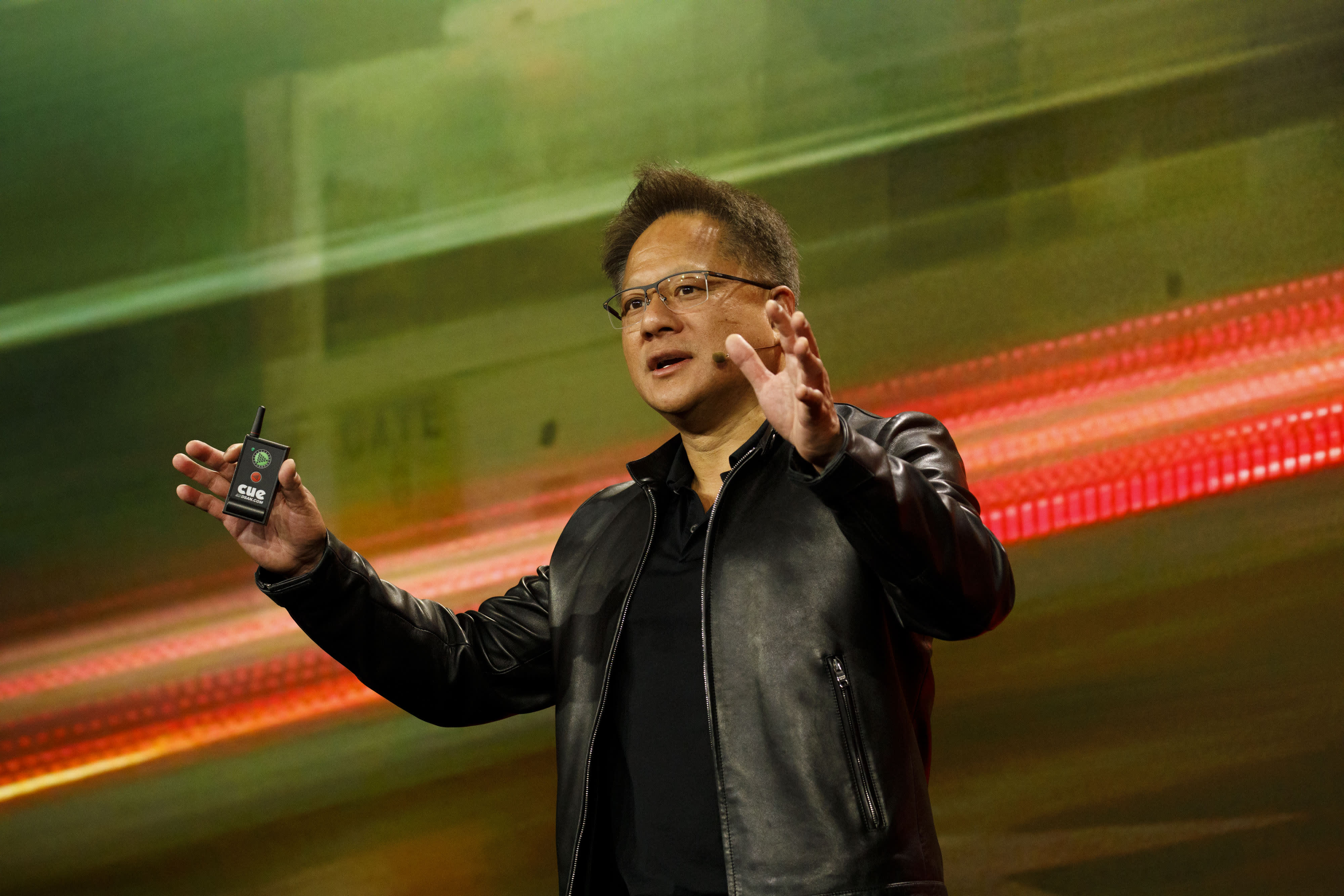
Jen-Hsun Huang, president and chief executive officer of Nvidia Corp., speaks during the company’s event at Mobile World Congress Americas in Los Angeles, California, U.S., on Monday, Oct. 21, 2019.
Patrick T. Fallon | Bloomberg | Getty Images
LONDON – Technologists at the heart of the technology scene in Cambridge, one of Britain’s academic powerhouses, are questioning Nvidia‘s commitment to a new artificial intelligence (AI) lab in the city, with some wondering whether it will ever come to fruition.
The U.S. chipmaker said it would set up a “world-class AI research center” when it announced its $40 billion acquisition of rival firm Arm earlier this month. At the time, Nvidia pledged to invest in a “state-of-the-art, Arm-powered AI supercomputer, training facilities for developers and a start-up incubator.”
But computer scientists in Cambridge are curious as to why they haven’t heard anything about the new center.
Neil Lawrence, professor of machine learning at the University of Cambridge, told CNBC: “The new AI lab sounds like a very exciting venture, but it’s difficult to know how it might contribute to the U.K. AI ecosystem without knowing more details.”
Arm, which is headquartered in Cambridge, is widely regarded as the jewel in the crown of the British tech industry and its chips power most of the world’s smartphones, as well as many other devices.
Cambridge is one of the U.K.’s most prominent tech clusters with companies like Apple, Microsoft and Amazon all employing engineers in the city. Interaction between the tech giants, the university and start-ups is the norm in Cambridge but Nvidia has been suspiciously quiet about its plans in the city.
“I’m not aware of any contact between Nvidia and the university,” said Lawrence, who previously worked as Amazon’s director of machine learning in Cambridge.
“There are definitely some large tech companies, like Microsoft and Arm, who have been actively engaged as partners [in Cambridge],” said Lawrence. “But of course, there will always be those that extract the benefit from the ecosystem, but choose to give very little back.”
Jon Crowcrowft, a professor in the Computer Laboratory at the University of Cambridge, told CNBC that he doesn’t know “anyone” in the Cambridge ecosystem who knows anything about Nvidia’s AI lab. “Not uni, nor Microsoft, Amazon, Nokia, Samsung, Oracle, etc etc,” he said.
Alex van Someren, a venture capitalist with Amadeus Capital Partners in Cambridge, told CNBC: “There’s no sign of it here yet.”
A spokesperson for Nvidia told CNBC the AI lab will go ahead. “We are fully committed and very excited about the Cambridge A.I. laboratory,” they said, pointing to a blog post by Chief Executive Jensen Huang.
“Now that we’ve announced, we will spend time talking with them and building a constructive framework that reflects our exciting plans and intentions in the U.K. We look forward to collaborating with local partners, and we already have some great partnerships in the U.K. with universities.”
It’s possible Nvidia simply wants to keep any detailed plans it has quiet for the time being, but some are asking if the center was announced on a whim to sweeten the deal after Arm co-founder Hermann Hauser came out strongly opposing the deal. Nvidia denies this is the case.
“I think it’s an absolute disaster for Cambridge, the U.K., and Europe,” Hauser told BBC Radio earlier this month.
Despite some opposition, Arm was acquired by SoftBank in 2016 for £19 billion ($24 billion) on the condition that it remained in Cambridge. Now SoftBank wants to sell it on to Nvidia.
Hauser said thousands of Arm employees will lose their jobs in Cambridge, Manchester, Belfast, and Warwick if Nvidia “inevitably” decided to move Arm’s headquarters to the U.S. and make the company a division of Nvidia.
He also thinks Nvidia would “destroy” Arm’s business model, which involves licensing chip designs to around 500 other companies including several that compete directly with Nvidia.
“Perhaps the idea of the lab is a sweetener for U.K. government in helping the deal to go through,” said Lawrence. “But the long term nutritional value of this lab is extremely difficult to assess without an existing track record of collaboration and investment.”




